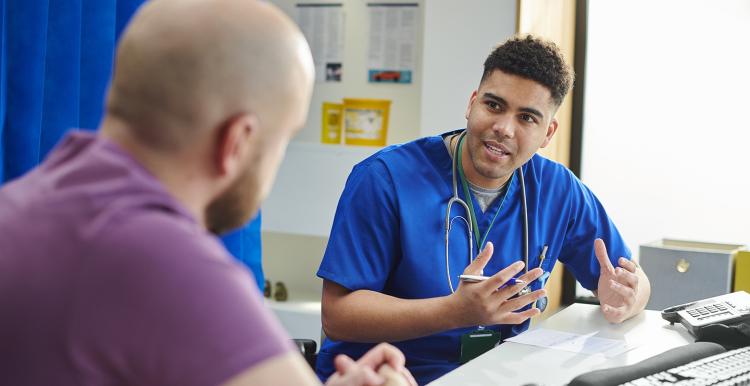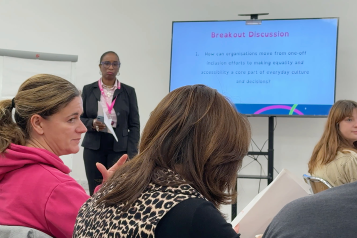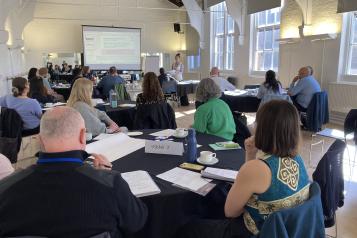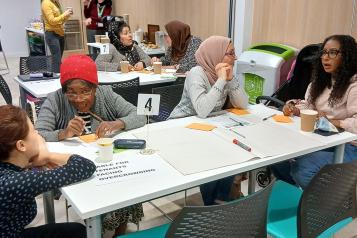Visibility is important in making LGBTQI+ residents feel welcome across services

There have been occasions when I wanted to disclose my identity to the GP, but I haven’t been able to, I feel concerned about how they may respond.
There is a gap in knowledge around the experiences of LGBTQI+ residents accessing mental health support. Outcome is a part-time community mental health space provided by Islington Mind, run by and for LGBTQI+ people. We worked with Outcome to gather feedback on mental health support services from 22 people using the space but found that participants wanted to discuss a wider range of services.
The issue of visibility, of being recognised and welcomed as an LGBTQI+ person, was important across all the services discussed.
"I am openly LGBTQI+ and feel seen. The GP refers to my partner with the right gender...The receptionists are very nice and know I am LGBTQI+ I feel very comfortable there."
"Receiving treatment from a physio who was an out lesbian made a huge difference...I felt much safer and more able to talk. I felt seen as a gay man when I went to the Centre."
Discrimination can make people wary of disclosing their orientation/gender identity
Wider discrimination within society impacts residents’ confidence to be open with healthcare, social care, and housing services. Not everyone we heard from felt comfortable raising the issue of their orientation/gender identity with their GP for fear of being judged or 'closeted' and this could be a barrier to receiving more effective care and support.
It was suggested that asking about orientation/gender identity when people register for services might be the easiest way to pass on this information. Visual cues that services will treat people equally, such as leaflets about LGBTQI+ support, and rainbows displayed in services were put forward as ways of letting service users know there is a commitment to treat them equally.
"It’s as if we become invisible and do not exist after Pride month. There is no visibility at the surgery about LGBTQI+ services. Would value seeing leaflets, perhaps a Rainbow flag sticker, in order to feel safer. And would definitely like to be asked on a form when first registering about sexual orientation."
This point about visual cues applies equally to hospital services. The rainbow flag has also been used to express support for NHS services during the pandemic lockdowns, so it is now hard to tell whether a flag means someone is LGBTQI+ friendly or pro-NHS.
In the context of hospital environments, we would recommend more explicit leafletting and signage to show that this is a welcoming space for the LGBTQI+ community, as well as using up-to-date progress flags that are fully inclusive.
Find out more
LGBTQI+ residents shared their experiences of accessing a variety of Islington services including healthcare, social care, and housing services. Read our full report to find out more.


